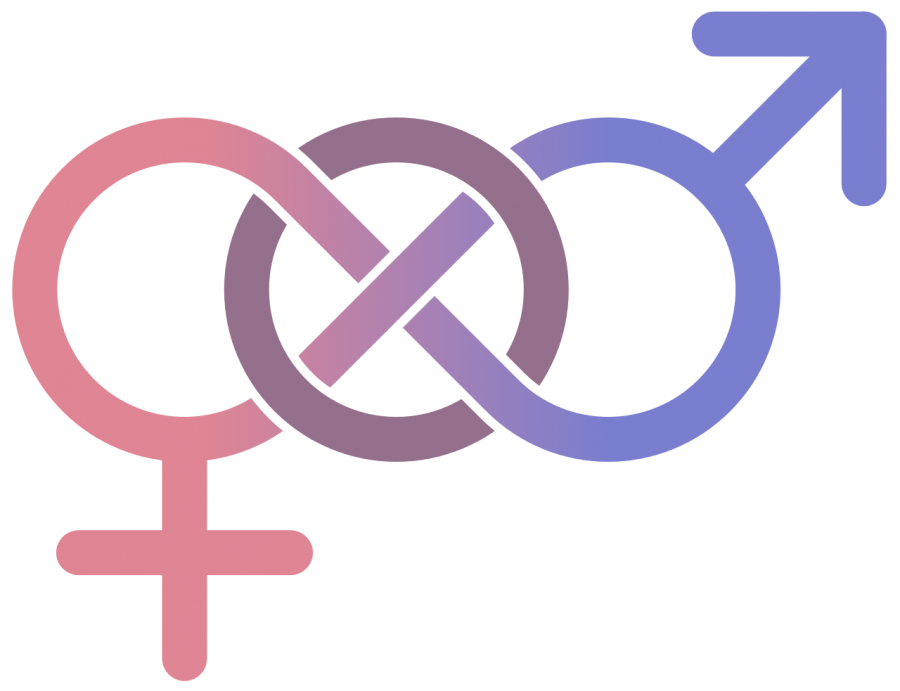By Chloe Iglehart
One cannot declare themselves a feminist without receiving numerous subtle, yet very disapproving and judgmental glances from their peers. Initially, the main concern of the feminist movement was the fight for women’s suffrage. Once that had been achieved, the goal of feminism shifted and is still relevant to this day.
Currently, feminism is defined as, “the theory of the political, economic, and social equality of the sexes,” according to Merriam-Webster. Unfortunately, feminism has developed a negative connotation because of many common misconceptions. The stereotypical angry, man-hating image of feminism deters many people from identifying as one, though many of those same people claim to support gender equality. The main issue is that individuals tend to think that feminists want supremacy over men when, in actuality, feminists advocate for equality between both sexes. Despite the misleading prefix “fem,” the movement is beneficial to all genders. In fact, contrary to popular belief, men have been aided by feminism in a multitude of ways.
Firstly, women’s empowerment and liberation benefits the entire community. The empowerment of women uplifts members of our society, which in turn inherently improves everyone’s quality of life. Aside from that though, feminism does directly benefit men, specifically. Certain stereotypes that glorify toxic masculinity have had a negative impact on men. Assuming that a man is unfit because he is not tough, powerful, assertive, aggressive, or violent leads to unhealthy expectations, and prompts men to reach for unattainable and unhealthy standards.
You may assume that these stereotypes have no real impact, but unconscious gender biases affect every part of our lives, and have actually influenced federal laws. In Oklahoma, in the case Craig vs. Boren, citizens were upset over gender specific drinking ages. Women were allowed to consume alcohol at 18, whereas men had to wait an additional three years, until they turned 21. Fortunately, this law was abolished, and the drinking age was made 21 for both genders. On the ruling, Justice Ruth Bader Ginsburg says the case called attention to, “[a] familiar stereotype: the active boy, aggressive and assertive; the passive girl, docile and submissive,” and that this arbitrary claim was “not fit to be written into law.” So next time you kick back to enjoy a beer with your pals, pay homage to Ginsburg. This is just one of many examples of Ginsburg’s fight to end discrimination, in the law, against men. Ginsburg is a woman who holds feminist values.
“I think the simplest explanation, and one that captures the idea, is a song that Marlo Thomas sang, ‘Free to be You and Me.’” Ginsburg said. “Free to be, if you were a girl—doctor, lawyer, Indian chief. Anything you want to be. And if you’re a boy, and you like teaching, you like nursing, you would like to have a doll, that’s okay too. That notion that we should each be free to develop our own talents, whatever they may be, and not be held back by artificial barriers,” Ginsburg explains how she defines feminism, in an interview with Makers. As she is a self identifying feminist, therefore her stance on abolishing a law that discriminated against men reflects what the vast majority of feminists would agree with.
In 2012, a separate instance of feminists advocating for male rights occurred. Shockingly, until relatively recently, the definition of rape did not include men. The feminist activist campaign, “Rape is Rape,” sought out to make the definition more inclusive. The previous definition, “the carnal knowledge of a female, forcibly and against her will,” was archaic and did not include male victims, therefore making it challenging for them to seek legal aide. In addition to excluding straight male victims, this definition does not include anal, oral, statutory rape, or rape using an object. On January 6th, 2012, the White House announced that the FBI had officially changed the definition of rape, allowing male sexual assault victims can receive legal attention and overall improve their safety.
Aside from these specific cases, one of the main focuses of feminism is minimizing gender roles. For a woman, the stereotypical role is staying home and working in the kitchen. For a man, this can include a multitude of expectations: being the breadwinner of the family and spending little time with his children, paying for dates, initiating relationships, being domineering, and being unable to wear makeup or act feminine, out of fear of being ridiculed and ostracized. All of these are very reminiscent of older times and truly limit how the modern man may choose to present himself and live his life. Of course, if a man enjoys to abide by these older precedents and that makes him happy, he has the right to do so. After all, the key to a fulfilled life is the right to choose how one lives it. Feminists wish to create this world: one in which either choice is acceptable, and all types of people who enjoy living in any manner may prosper.
